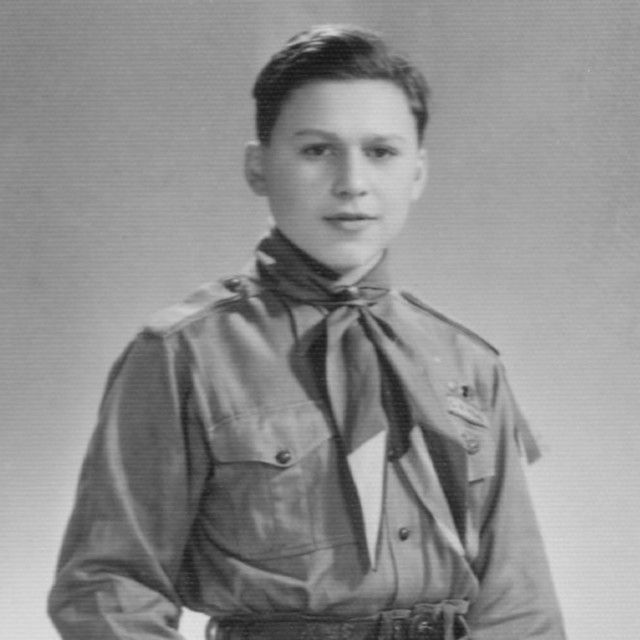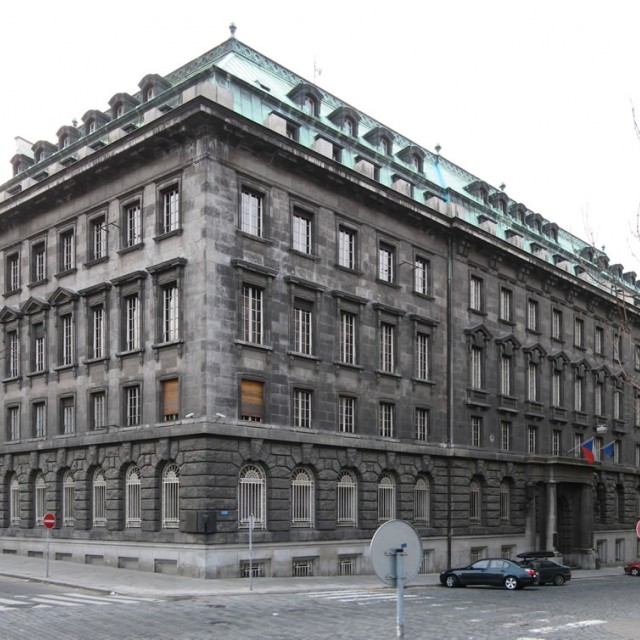It’s got to be a lake
František Wretzl surrendered himself to the Gestapo in July 1944, because he sensed that his arrest was inevitable anyway. Despite this mitigating circumstance he wasn’t treated with kid gloves in the so-called “Pečkárna.” They tried to beat out of him the details of his illegal activities. “The interrogator would comb his hair with his hand or he would hold his belt and asked me what it meant. I said that I didn’t know and got a strong blow to the face. I didn’t know these were supposed to be certain signs that the Bureš troop used in case a patrol was close,” he recalled. František was beaten by up to five interrogators at a time, taking turns in slapping him and beating with a “gumiknüppel,” (a hose filled with wire and sand). Then he was ordered to bend over, put his hands behind his knee pits and the interrogators handcuffed him: “At first nothing happens, but after a while you stop to feel your feet. They begin to itch and it’s getting worse and worse. Then you start to sweat in your face. The sweat runs down to the middle of your forehead and drips down on the ground. Every once in a while the Gestapo man would come to inspect me. He looked on the ground and said: 'That's nothing, it’s got to be a lake.' After a while, I felt like my legs could no longer carry me and I was beginning to lose balance. I swayed from side to side and I wondered whether I’d fall on the wardrobe or smash my head against the sink. At that point the Gestapo man released the handcuffs and I stood up. That moment was quite an experience for me. As the blood rushed to my feet, it was like if thousands of needles stinging you sharply.”
Hodnocení
Hodnotilo 0 lidí
Routes
Not a part of any route.
Comments
No comments yet.









